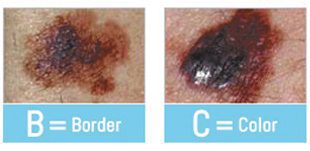By Dr. Aneley Yegezu Hundae, M.D., FACC


Intravenous drug use, particularly involving substances like heroin, cocaine, and methamphetamine, has been identified as a significant risk factor for IE. The process of injecting drugs directly into the bloodstream can introduce bacteria and other pathogens into the body, increasing the likelihood of infection. Moreover, repeated injections can cause damage to the blood vessels and compromise the immune system, further facilitating the entry of harmful microorganisms.
One of the primary concerns regarding IE in IV drug users is the potential for bacteremia, where bacteria from an infected site enter the bloodstream. This bacteremia can lead to the colonization of heart valves, particularly those already compromised due to pre-existing conditions or drug-related damage. Once established, the bacteria can multiply rapidly, forming vegetations that interfere with the normal functioning of the heart valves. Without prompt treatment, these vegetations can cause valve dysfunction, leading to heart failure, stroke, or other life-threatening complications.
The symptoms of IE can vary widely, ranging from fever, chills, and fatigue to more severe manifestations such as heart murmurs, shortness of breath, and signs of embolization, where infected material travels to other parts of the body. However, diagnosing IE in IV drug users can be challenging due to overlapping symptoms with drug-related effects and the reluctance of some individuals to seek medical attention. As a result, cases of IE in this population may go undetected or be diagnosed at a later stage when complications have already developed.
In addition to the immediate risks posed by IE, IV drug use can also have lasting effects on heart health. Chronic drug abuse can lead to cardiomyopathy, a condition characterized by the weakening of the heart muscle, which can increase the risk of
arrhythmias, heart failure, and sudden cardiac death. The stimulant effects of drugs like cocaine can also trigger acute cardiovascular events, such as myocardial infarction (heart attack) and aortic dissection, further exacerbating heart complications in this vulnerable population.
Addressing the complex interplay between infective endocarditis, IV drug use, and heart complications requires a multifaceted approach. Prevention efforts should focus on harm reduction strategies, including needle exchange programs, supervised injection sites, and access to addiction treatment services. Education campaigns aimed at raising awareness about the risks of IV drug use and the importance of seeking medical care for symptoms of infection are also crucial in preventing the spread of IE among this population.
Furthermore, healthcare providers need to be vigilant in screening IV drug users for IE and providing timely intervention to prevent progression to severe complications. This may involve implementing protocols for early detection, such as blood cultures and echocardiography, as well as offering comprehensive care that addresses both the infectious and cardiovascular aspects of the disease. Collaboration between medical professionals, addiction specialists, and community organizations is essential to ensure a coordinated approach to managing IE in IV drug users.
In conclusion, the link between infective endocarditis, intravenous drug use, and heart complications underscores the urgent need for proactive measures to address this public health challenge. By implementing effective prevention strategies, improving access to healthcare services, and fostering collaboration across sectors, we can mitigate the impact of IE on individuals, families, and communities affected by IV drug use while promoting heart health and overall well-being.
Dr. Aneley Yegezu Hundae, M.D., FACC invasive cardiology and advanced heart failure management
Dr. Hundae received his Premedical and Doctor of Medicine Degree from Jimma University School of Medicine. He completed his Internal medicine Residency at Mercer University School of Medicine. His Heart Failure/Heart Transplant fellowship at the University of Miami Cardiovascular Fellowship Program. Cardiovascular fellowship at Baylor University Medical Center.
Board certifications
• Cardiology
• Advanced Heart Failure and Transplant
• Nuclear Cardiology
• Comprehensive Echocardiography
• Internal Medicine
3161 Harbor Blvd, Suite A, Port Charlotte, FL 33952
(941) 235-8892
www.portcharlottecardiology.com
 Southwest Florida's Health and Wellness Magazine Health and Wellness Articles
Southwest Florida's Health and Wellness Magazine Health and Wellness Articles

